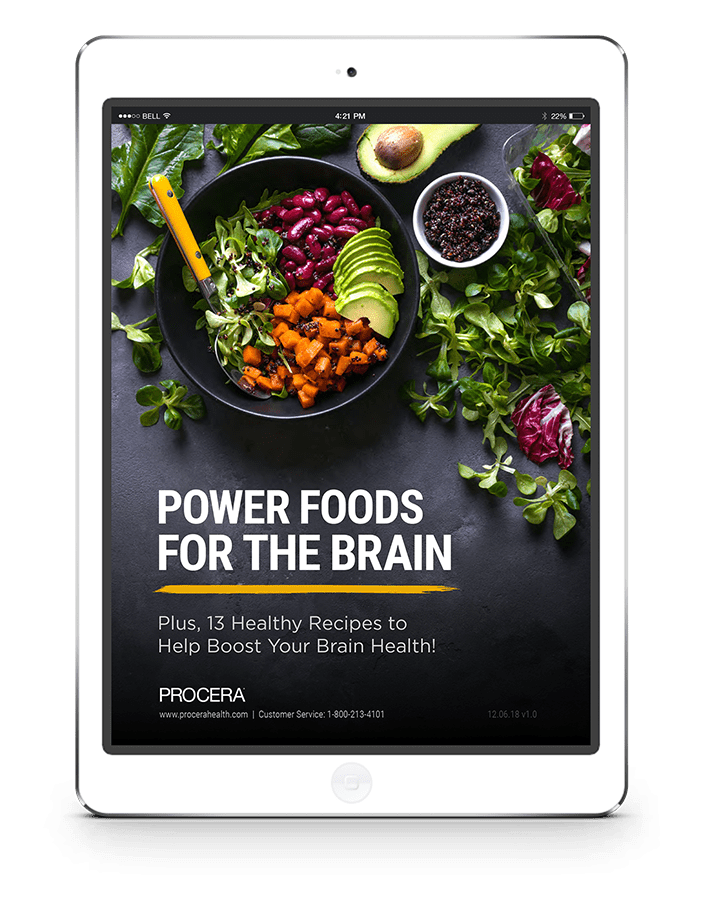
If you find yourself constantly feeling fatigued, distracted, moody and just plain “off,” you’re likely dealing with some sort of “brain fog.” Brain fog has become an unwanted side effect of our fast-paced, industrialized lifestyle and more recently, COVID-19 survivors.
It is estimated that 10 to 30% of COVID-19 survivors complain of lingering or long haul problems related to the brain and nervous system. A recent study found that 85 percent of them had neurological issues such as brain fog, headache, numbness, loss of taste and smell, muscle pain and dizziness. The good news is the National Institutes of Health has dedicated $1.15 billion to studying the neurological effects of COVID-19 and established a “biobank” collecting data and biological specimens from COVID-19 survivors with neurological problems. The bad news is these type of NIH studies can take time and people need help now.
How Does COVID-19 Attack The Brain?
Dr. Tamara Fong, a cognitive neurologist at Beth Israel, said the long-haulers’ symptoms often resemble a post-concussion syndrome. But unlike with a concussion, it’s not clear whether the brain suffered a direct injury. It’s also not clear whether the virus even enters the brain. But there is evidence it attacks the blood vessels that nourish the brain. Dr. Serena Spudich, an infectious-diseases neurologist who runs a post-COVID clinic at Yale, says the evidence points toward an ongoing immune-system activation as the likely cause of continuing symptoms. Trouble sleeping is among the hallmark struggles of long-haulers, and may drive the other symptoms, she said. “If you don’t have restorative sleep, it’s impossible to feel energetic and do your daily work,” said Maley, of Beth Israel. “If we can restore sleep, it can have a huge impact.”
Brain Fog Symptoms
While the healthcare community may have limited experience with post COVID-19 health issues, numerous people with traditional brain fog and sleep problems have experienced relief through a combination of lifestyle changes and natural supplements. People that suffer from brain fog describe it as the opposite of feeling level-headed, calm, optimistic and motivated. Brain fog can easily rob you of inspiration and happiness, while increasing the likelihood for symptoms of anxiety and low mood. Researchers from the Departments of Physiology and Medicine at New York Medical College Valhalla describe brain fog symptoms as “an interaction of physiological, cognitive, and perceptual factors.” It’s likely that brain fog is rooted in a lifestyle that promotes inflammation and hormonal imbalances — and is exacerbated by stress. Brain fog symptoms usually include:
• low energy or fatigue
• irritability
• trouble concentrating
• headaches
• forgetfulness and trouble remembering information
• low motivation, feeling hopeless or mildly depressed
• anxiety
• confusion
• trouble sleeping through the night
• difficulty exercising
Causes of Brain Fog
First and foremost, it’s not surprising that if you’re not getting enough sleep, you have a higher likelihood of always feeling tired and dealing with brain fog. We all need between about seven to nine hours of quality sleep every night to think clearly.
If you do consistently get good sleep but still struggle with brain fog symptoms like ongoing fatigue and low motivation, chances are this might have something to do with the quality of your diet. Deficiencies, coupled with sugar, alcohol, refined carbohydrates and caffeine overdose can majorly impact brain function.
On a cellular level, brain fog is believed to be caused by high levels inflammation and changes to three primary hormones that determine your mood, energy and focus: dopamine, serotonin and cortisol. Cortisol is often called the body’s primary “stress hormone,” since it helps keep you awake and alert, while dopamine and serotonin help keep you joyful, motivated and calm.
The brain and entire body rely on a complex symphony of hormones that work to keep one another in check, so when levels of one hormone either falls too low (for example, serotonin drops due to a very low carbohydrate intake) or climbs too high (cortisol increases due to stressful events over money), the whole system can be thrown off. Rebalancing your production of these chemicals helps put you on the right track for better brain function.
The other factor that increase brain fog symptoms and robs you of your usual personality “spark” is, unsurprisingly, inflammation. Inflammation is caused by low-grade overactivity of the immune system and is tied to serious health issues as well as insomnia. The good news is that anti-inflammatory foods support brain health, and high intakes of vitamins and minerals have been shown to benefit people’s moods and mental capabilities.
Natural Solutions Available Now!
Want to regain your sense of clear-headedness, focus and joy? Like nearly all things health-related, it starts with addressing the underlying issues, including your diet, stress levels, sleep and level of physical activity. The brain relies on a steady stream of vitamins and minerals, amino acids, essential fatty acids, and glucose from complex carbohydrates, in addition to getting enough rest and relaxation.
1. Watch Your Sugar Intake and Get Enough Protein & Healthy Fats
Cutting back on packaged and processed foods that are loaded with sugar, in addition to many other artificial and harmful ingredients is the first step to fixing brain fog. Sugar might make you feel energetic and happier at first, but ultimately your sugar addiction robs you of steady energy and focus. Focus on filling up on brain foods that support focus and memory such as sweet potatoes, yams, fruit, organic dairy and whole grains are all good sources of serotonin-boosting carbs.
We all require a steady supply of amino acids and essential fatty acids in order to make all of the brain chemicals we need to think clearly. Complete proteins are food sources like meat, dairy products, fish and eggs that supply all the essential amino acids we require, and these are the best way to keep the brain pumping out enough of the hormones that support a positive mind-set.
2. Targeted Supplementation
Certain supplements can help clear up brain fog and further support a healthy diet, regular rest, exercise and a connected lifestyle:
o Ginkgo biloba, Panax Ginseng & Vinpocetine – these plant based ingredients boost blood flow to the brain and help optimize the use of the nutrients in the brain.
o Adaptogens like Ashwagandha & Rhodiola − help lower cortisol and give your body support against dealing with fatigue and stress.
• Omega-3 & Phosphatidylserine – these foundational nutrients feed the brain and fight inflammation, providing long term benefits.
• B vitamins — Deficiencies in various B vitamins can leave you feeling sluggish and moody. B vitamins help convert nutrients from the foods you eat into usable fuel for the body, so taking a B complex supplement can make sure you’re in the optimal range.
• Magnesium, Valarian, Hops & L Theanine – found in Procera Sleep, these ingredients relax the body and mind and help you achieve deep, restorative sleep.
You can find these well researched ingredients in Procera Advanced Brain, Procera Mood, Procera Sleep and Procera Essential Multivitamin.
3. Manage Stress
These days, it’s tough to go more than a few hours without an influx of “stressors” like emails, texts and cell phone calls. This becomes distracting, tiring and makes it hard to work uninterrupted for any extended period of time. Although you might not realize it, it’s also stressful to receive various alerts and so much information all day long. Set time aside for practicing “stress-reducing techniques such as praying, meditating, exercising, journaling, reading and spending more time in nature. You may also want to give Procera Mood a try.
4. Get Good Sleep
One of the fastest and more reliable ways to improve brain function is to get better sleep. The hormones in your brain stay in balance when your body gets adequate rest every night, at least seven hours for most adults. When you’re constantly “running on fumes,” you’re very likely to find it hard to pay attention at work, engage in meaningful conversations and retain information. You’re also better able to manage your hunger, food cravings and emotions when well-rested, which can benefit your weight and health in multiple ways. Need additional support, give Procera Sleep a try.
5. Exercise in a Healthy Way
Exercise lowers inflammation, helps bust stress and increase energy levels, but too much poses risks for hormonal imbalance and even more fatigue. For most people, moderate and regular exercise can help balance hormones, improve insulin resistance and help you to get better sleep, all of which are important for fighting fatigue. Exercise releases natural endorphins, boosting your stamina and lifting your mood.








.png?width=1350&name=Procera%20Logo%20W%20Tagline%20White%20(3).png)
Comments
Add Comment